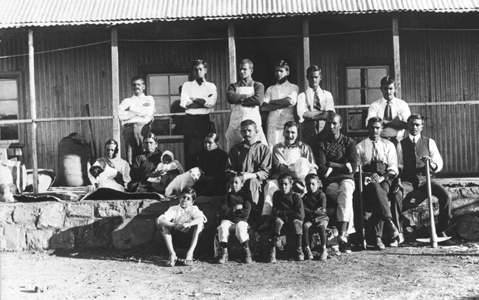
Gandhi was nominated four times for the Nobel Peace Prize (1937, 1938, 1939 and 1947). Though regarded as the greatest apostle of peace in the 20th century, he missed it every time. Professor Jacob Muller wrote a strong dissent against Gandhi: “He is a freedom fighter and a dictator; an idealist and a nationalist. His well-known struggle in South Africa was on behalf of the Indians only; and not of the blacks whose living conditions were even worse.” The Nobel Committee regretted this decision in retrospect, when they conferred the peace prize on the Dalai Lama in 1989.
Gandhi was convinced about a participative method among social inmates. The Tolstoy Farm in South Africa, which Gandhi set up with the help of his German architect friend, Hermann Kallenbach, is testimony to his belief in community living. It was an ideal laboratory for children, who were given vocational training and encouraged to have co-education with girls. The farm inculcated the ideal of social service and good citizenship among children.
Gandhi believed India lives in villages and that grass-roots democracy (Panchayati Raj) is the real way forward for an empowered India. He was aware that 70 per cent of Indians lived in villages and that most among them were dependent on farming. He was keen that villages must become the epicenter of handicraft manufacturing. Sadly, villages in India remain mired in poverty, illiteracy and unemployment. The SECC Report (2011) brings out how 38.3 per cent continue to be landless and in casual employment and nearly 75 per cent earn less than Rs5,000 a month; Thirty-six per cent of rural population continues to be illiterate and only 3.6 per cent have access to Kisan Credit Cards.
The Tolstoy Farm in South Africa, which Gandhi set up with the help of his German architect friend, Hermann Kallenbach, is testimony to his belief in community living
In this context, there is an inevitable comparison between the growth trajectories of India and China, as they became independent around the same time, with similar per capita income and same percentage of population living in villages. Since economic liberalisation, villages in China have become epicenters of labour intensive manufacturing. Professor Pranab Bardhan in a remarkable book ‘Awakening Giants, Feet of Clay: Assessing the Economic Rise of China’ has brought out how the Township and Village Enterprises (TVEs) have become game changers. From a share of 6 per cent of GDP in 1978, their contribution had increased to 26 per cent by 1996. This has been possible due to a wonderful fusion of free market environment with cheap credit support and massive vocational training.
The Sustainable Development Goals, 2016, call upon all nations to foster quality education and to ensure zero poverty and hunger. It also hopes that the world will have affordable clean energy, take action for climate change and build strong institutions. Gandhi persistently called on people to eschew consumerism and to grow organic food to build a harmonious blend of nature and life. He was what a modern day advocate of SDGs is. For him the greatest happiness of a noble being is to be undeterred by greed and wealth.
Unlike Adam Smith and Karl Marx, Gandhi was ideology neutral. He wrote “I have not read books by Marshall, Mill and Smith. There comes a moment when a little voice tells you, you are not the right track. Turn neither to your left nor right, but keep to the straight narrow way.” He also believed “true economics stand for social justice”. His belief that non-violence is non-negotiable; employment, environment and vocational training are critical pathways to development of villages; and empowerment of 3Hs — Head, Heart and Hand — of children are the true keys to true citizenship will make him the greatest Indian that straddled the global path. Denial of a Nobel Prize does not dent the charisma of the Mahatma.
The writer teaches constitutional law. e-Mail: misra.sn54@gmail.com
